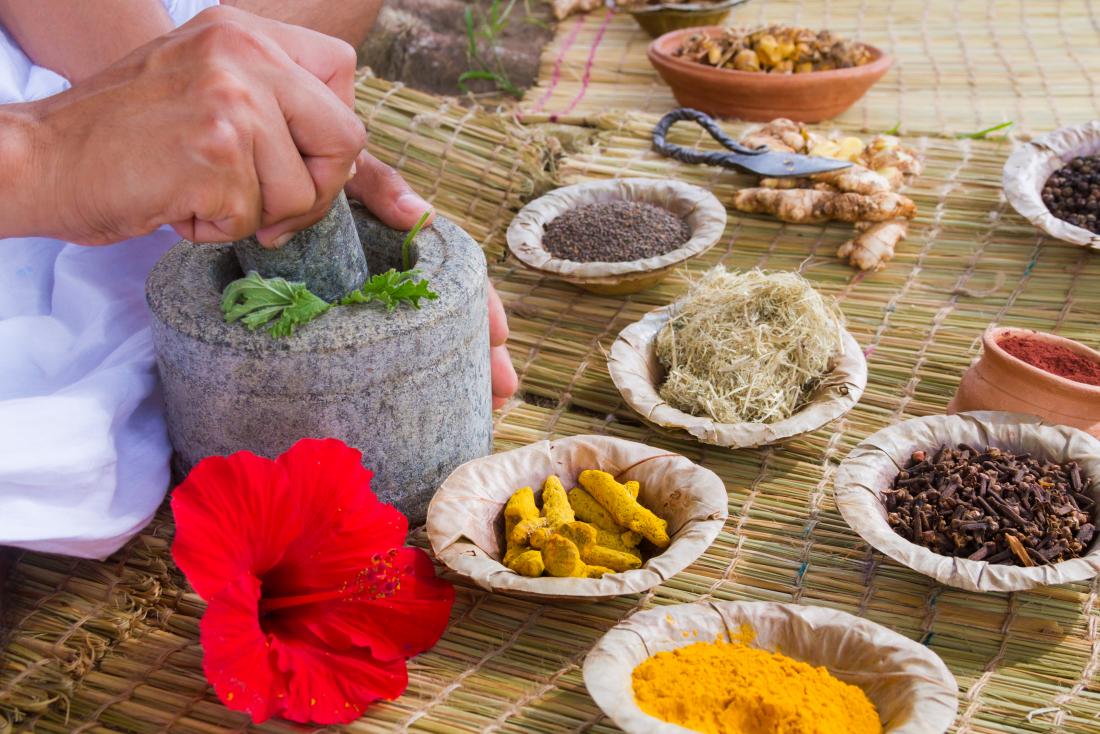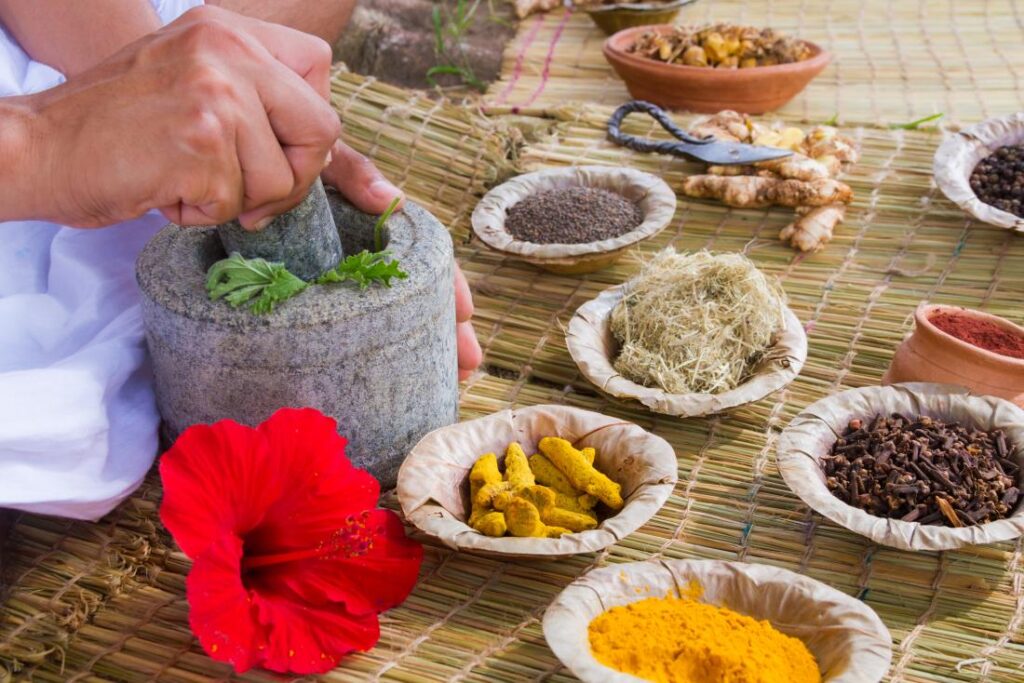Ayurvedic Remedies That Actually Relieve Depression Symptoms

Understanding Depression and its Symptoms

Depression is a complex mental health condition that affects millions of people worldwide. It is characterized by feelings of sadness, hopelessness, and a lack of interest or pleasure in daily activities. While everyone experiences temporary bouts of low mood, depression is different in that it persists for extended periods and significantly interferes with a person’s ability to function.
The symptoms of depression can vary from person to person, making it a challenging condition to diagnose. However, some common signs include persistent sadness, lack of energy, changes in appetite and sleep patterns, difficulty concentrating, and thoughts of death or suicide. It is important to note that not everyone with depression will experience all of these symptoms, and the severity can range from mild to severe. It is crucial to seek professional help if you or someone you know is experiencing these symptoms, as early diagnosis and intervention are key in effectively managing depression.
The Ancient Wisdom of Ayurveda

Ayurveda, an ancient medical science originating in India, offers a holistic approach to health and well-being. With roots dating back over 5,000 years, this traditional system of medicine takes into account the interconnectedness of the mind, body, and spirit. Ayurveda views health as a state of balance between the three fundamental energies, or doshas, known as Vata, Pitta, and Kapha. Each person has a unique constitution, or prakriti, determined by the predominance of these doshas within them. By understanding one’s prakriti and addressing any imbalances, Ayurveda strives to restore health and prevent disease.
Central to Ayurvedic philosophy is the belief that prevention is key. Rather than focusing solely on treating symptoms, the emphasis is on maintaining optimal health through daily routines and lifestyle choices. Ayurveda encompasses a wide range of practices, including diet, herbal medicine, massage, yoga, meditation, and detoxification therapies. These methods are designed to promote physical and mental well-being, enhance the body’s natural healing abilities, and prevent disease. Incorporating Ayurvedic principles into your life can help you achieve balance and vitality, allowing you to live a healthier, more fulfilling life.
Identifying the Root Causes of Depression
Depression is a complex mental health condition that can be caused by a variety of factors. Identifying the root causes of depression is crucial for effective treatment and management of this condition. While it is important to note that each individual’s experience with depression is unique and multifaceted, certain common underlying causes have been identified through research and clinical studies.
One of the primary causes of depression is believed to be a complicated interplay between genetic and environmental factors. Research has shown that individuals with a family history of depression are more likely to develop the condition themselves, indicating a genetic predisposition. However, it is important to understand that genetic factors alone do not determine the occurrence of depression, and environmental factors play a significant role as well.
Chronic stress, trauma, and negative life events can also contribute to the development of depression. These external factors can impact an individual’s mental well-being and trigger a cascade of physiological changes in the brain, leading to depressive symptoms. Additionally, certain medical conditions, such as chronic pain, hormonal imbalances, and neurological disorders, have been associated with an increased risk of depression.
By identifying and addressing the root causes of depression, healthcare professionals can develop personalized treatment plans that target the specific factors contributing to an individual’s depression. This comprehensive approach not only helps alleviate symptoms but also aims to prevent future episodes. It is crucial to seek professional guidance and undergo a thorough evaluation to gain a deeper understanding of the root causes of depression.
Balancing Doshas for Mental Well-being
In Ayurveda, mental well-being is closely connected to the balance of the three doshas: Vata, Pitta, and Kapha. These doshas are the fundamental energies that govern our physical and mental health. When these energies are in harmony, our mental state is balanced and stable. However, an imbalance in the doshas can manifest as various mental health issues, including depression.
To achieve mental well-being, it is crucial to understand the characteristics of each dosha and take appropriate measures to balance them. Vata, characterized by qualities of air and space, is associated with creativity and movement. An excess of Vata energy can lead to anxiety and restlessness. Pitta, associated with fire and water, governs our digestion and metabolism. When Pitta is imbalanced, individuals may experience irritability and aggression. Lastly, Kapha, characterized by earth and water, is responsible for stability and groundedness. Imbalanced Kapha can lead to feelings of lethargy and depression.
To restore doshic balance, Ayurveda recommends a holistic approach that includes lifestyle modifications, dietary changes, and herbal remedies. Regular self-care practices such as massage with Ayurvedic oils can also help to pacify and balance the doshas. Additionally, engaging in activities that promote mental and emotional well-being, such as meditation and yoga, can be highly beneficial. By addressing imbalances in the doshas, individuals can achieve mental well-being and prevent or manage symptoms of depression.
(Note: This section provides a general overview of balancing doshas for mental well-being. For personalized advice and guidance, it is recommended to consult with a qualified Ayurvedic practitioner.)
The Importance of Lifestyle Changes

Depression is a complex mental health condition that can have a significant impact on a person’s quality of life. While there are various treatment options available, it is important to recognize the role that lifestyle changes can play in managing and preventing depression.
One key aspect of lifestyle changes is incorporating regular exercise into one’s daily routine. Exercise has been shown to release endorphins, which are hormones that promote feelings of well-being and happiness. In addition, it helps to reduce stress and anxiety, two factors that can contribute to the development of depression. Whether it’s going for a walk, practicing yoga, or participating in a team sport, finding an activity that one enjoys and can commit to regularly can have a positive impact on mental well-being.
In addition to exercise, maintaining a healthy diet is also crucial in the management of depression. Research has shown that certain nutrients can have a direct impact on brain health and function. For example, omega-3 fatty acids, found in fatty fish like salmon and mackerel, have been found to have antidepressant effects. Similarly, foods rich in antioxidants, such as fruits and vegetables, can help to reduce inflammation in the brain, which has been linked to depression. Making small changes to one’s diet, such as incorporating more whole foods and reducing processed foods, can have a significant impact on mental health.
Adapting a Nutrient-Dense Ayurvedic Diet
In Ayurveda, diet plays a crucial role in promoting overall health and well-being, including mental health. Adapting a nutrient-dense Ayurvedic diet can be beneficial for individuals dealing with depression or seeking to maintain a healthy mind. This approach to nutrition focuses on incorporating whole foods that are rich in essential nutrients, antioxidants, and phytochemicals, which can support optimal brain function and emotional well-being.
Psychiatrist Dr. Henry Emmons describes How can practicing Ayurveda help you live a balanced life and decrease anxiety and depression.
When following an Ayurvedic diet for depression, it is important to choose foods that are nourishing and easily digestible. This includes incorporating a variety of fruits, vegetables, whole grains, lean proteins, and healthy fats into your daily meals. Ayurveda emphasizes the importance of balancing the six tastes – sweet, sour, salty, pungent, bitter, and astringent – in each meal to support all aspects of the body and mind. Additionally, consuming foods that are high in omega-3 fatty acids, such as fatty fish, flaxseeds, and walnuts, can also be beneficial for managing depression symptoms.
Moreover, Ayurveda suggests incorporating specific herbs and spices into your diet to support mental well-being. For example, ashwagandha, a powerful adaptogenic herb, has been traditionally used in Ayurvedic medicine to reduce stress and anxiety. Turmeric, with its active compound curcumin, has shown promising results in research studies for its potential antidepressant effects. These herbs and spices can be added to meals, consumed as supplements, or used in teas and tonics to enhance the nutritional value of an Ayurvedic diet for depression.
Exploring Herbal Remedies for Depression
Herbal remedies have long been used in Ayurvedic medicine as a natural approach to managing depression symptoms. These remedies are derived from various plants and herbs, each offering unique properties that can help restore balance to the mind and body. One such herb is St. John’s wort, which has been extensively studied for its antidepressant effects. Research suggests that this herb may be beneficial in alleviating mild to moderate depression symptoms, though its use should be approached with caution due to the potential for interactions with certain medications.
Here is a table summarizing herbal remedies for depression and their benefits:
| Herbal Remedies for Depression | Benefits |
|---|---|
| St. John’s Wort | Numerous studies have shown that St. John’s wort is a safe and effective natural herb for depression. It’s typically used for moderate depression 1. |
| Omega-3 Fatty Acids | Omega-3 fatty acids are essential fats that play a crucial role in brain function and mental health. Studies have shown that omega-3 supplements can help alleviate symptoms of depression 2. |
| Elemental Folate | Folate is a B vitamin that is essential for brain function and mental health. Studies have shown that folate supplements can help alleviate symptoms of depression 2. |
| SAMe | SAMe is a naturally occurring molecule that is involved in many biological processes in the body. Studies have shown that SAMe supplements can help alleviate symptoms of depression 3. |
| Rhodiola Rosea | Rhodiola rosea is an herb that has been used for centuries to treat depression and anxiety. Studies have shown that rhodiola rosea supplements can help alleviate symptoms of depression 4. |
| Saffron | Saffron is a spice that has been used for centuries to treat depression. Studies have shown that saffron supplements can help alleviate symptoms of depression 5. |
| Bacopa | Bacopa is an herb that has been used in Ayurvedic medicine for centuries to treat depression. Studies have shown that bacopa supplements can help alleviate symptoms of depression 6. |
Another herb commonly used in Ayurveda for depression is ashwagandha. This adaptogenic herb is renowned for its ability to combat stress and promote a sense of calm. Studies have shown that ashwagandha may reduce cortisol levels, a hormone associated with stress, thereby helping to manage depressive symptoms. Additionally, other herbs such as Brahmi, Jatamansi, and Shankhpushpi have also been traditionally used in Ayurveda to support mental health and well-being. However, it is important to note that individual responses to herbal remedies may vary, and consulting a qualified Ayurvedic practitioner is recommended to determine the most suitable treatment approach.
Harnessing the Power of Meditation and Yoga
Meditation and yoga have long been recognized for their powerful role in promoting mental well-being. These practices have found their roots in ancient traditions and have been embraced by modern science for their tangible benefits. Both meditation and yoga provide individuals with a toolkit to manage stress, reduce anxiety, and improve overall mental health.
Meditation, in its various forms, helps individuals achieve a state of deep relaxation and increased self-awareness. It allows for a calm and focused mind, enabling individuals to develop a sense of inner peace and emotional stability. Research studies have shown that regular meditation practice can help reduce symptoms of depression and anxiety, increase resilience, and promote overall well-being.
On the other hand, yoga combines physical postures, breath control, and meditation to improve mental and physical health. The practice of yoga has been shown to reduce stress and anxiety, improve sleep quality, and enhance overall mood. With its emphasis on conscious breathing and mindful movement, yoga helps individuals cultivate a sense of inner balance and harmony.
Incorporating meditation and yoga into one’s daily routine allows individuals to tap into their inner strength and experience a profound sense of well-being. Harnessing the power of these ancient practices can be a transformative journey towards mental and emotional health.
Using Ayurvedic Oils for Self-Care Practices
Ayurvedic oils have been used for centuries as a powerful tool for self-care and promoting overall well-being. These oils, derived from natural sources such as herbs, flowers, and seeds, are renowned for their therapeutic properties and ability to nurture both the body and mind.
When it comes to self-care practices, Ayurvedic oils offer a wide range of benefits. Not only do they deeply nourish and moisturize the skin, but they also have the ability to penetrate deep into the tissues, promoting rejuvenation and relaxation. Applying Ayurvedic oils to the body can help alleviate stress, calm the mind, and create a sense of balance and tranquility. Additionally, many Ayurvedic oils are known for their ability to support healthy digestion, boost immunity, and improve overall well-being.
To truly harness the power of Ayurvedic oils for self-care, it is important to choose oils that are specifically tailored to your unique dosha or mind-body constitution. The ancient wisdom of Ayurveda recognizes that each individual is unique and requires a personalized approach to achieve optimal wellness. By understanding your dosha, you can select oils that help balance and harmonize your specific needs.
One commonly used Ayurvedic oil is sesame oil, which is often recommended for all doshas due to its balancing and nourishing properties. Another popular oil is coconut oil, known for its cooling and calming effects on Pitta dosha. For those with Vata dosha, almond oil is often recommended as it helps provide warmth and grounding. Customized oil blends can also be created by mixing multiple oils to target specific health concerns or imbalances.
To incorporate Ayurvedic oils into your self-care routine, it is recommended to perform self-massage, also known as Abhyanga. This practice involves massaging the oil onto the body before bathing, allowing it to deeply penetrate the tissues and promote relaxation. Additionally, Ayurvedic oils can also be used in other self-care practices such as oil pulling, where the oil is swished around in the mouth for a set period of time to support oral health.
In conclusion, Ayurvedic oils are a valuable tool for self-care and can offer numerous benefits for the body and mind. By selecting oils specific to your dosha and incorporating them into your routine, you can experience the profound effects of these natural remedies. Whether used for self-massage or other self-care practices, Ayurvedic oils have the potential to transform your well-being and enhance your overall quality of life.
Understanding the Role of Panchakarma Therapy
Panchakarma therapy is a comprehensive Ayurvedic treatment method that aims to remove toxins from the body and restore balance. Derived from the Sanskrit words ‘pancha’ meaning ‘five’ and ‘karma’ meaning ‘actions’, Panchakarma involves a series of five therapeutic procedures that work in harmony to detoxify and rejuvenate the body.
The primary goal of Panchakarma therapy is to eliminate accumulated toxins, known as ‘ama’, from the body. These toxins are believed to be the root cause of many health issues, including depression. Panchakarma achieves this through a combination of practices such as massage, herbal steam, nasal irrigation, and enemas. When performed under the guidance of a qualified Ayurvedic practitioner, Panchakarma therapy can help restore the body’s natural balance, promote emotional well-being, and alleviate symptoms of depression. By eliminating toxins, improving digestion, and enhancing overall vitality, Panchakarma therapy offers a holistic approach to mental health management.
Exploring Ayurvedic Herbs for Stress Relief
Ayurveda, the ancient Indian system of medicine, offers a holistic approach to stress relief through the use of various herbs. These herbs have been used for centuries to promote relaxation, balance the body, and support overall well-being. One such herb is ashwagandha, also known as Withania somnifera, which is widely regarded for its adaptogenic properties. Adaptogens are substances that help the body adapt to stress, improving its ability to cope with external pressures. Ashwagandha has been shown to reduce cortisol levels, a hormone released during times of stress, thus promoting a sense of calmness and relaxation. This herb can be consumed in various forms such as capsules, powders, or as a tea.
Another popular herb in Ayurveda for stress relief is Brahmi, scientifically known as Bacopa monnieri. Brahmi is considered a brain tonic that helps improve cognitive function and reduce anxiety. It is known for its ability to enhance memory and focus, making it a valuable herb for individuals experiencing stress-related mental fatigue. Research studies have also shown its potential to reduce cortisol levels and enhance the production of serotonin, a neurotransmitter that regulates mood and promotes a sense of well-being. Brahmi can be consumed in tablet or powder form, or as an ingredient in Ayurvedic formulations specifically designed to promote relaxation and reduce stress.
Incorporating these Ayurvedic herbs into your daily routine may support your body’s ability to manage stress effectively. However, it is important to consult a qualified Ayurvedic practitioner or healthcare professional before starting any new herbal regimen, especially if you have underlying medical conditions or are taking medications. They can guide you on the appropriate dosage and ensure that these herbs are suitable for your individual needs. Additionally, it is crucial to remember that stress relief is a multi-faceted process, and along with herbs, other lifestyle changes and therapeutic interventions may be necessary for comprehensive stress management. Together, these approaches can contribute to a healthier, more balanced mind and body.
The Power of Ayurvedic Rasayanas in Depression Management
Ayurvedic rasayanas have been used for centuries in the management of depression. These rejuvenating herbal formulations are believed to have profound effects on the mind and body, helping to restore balance and promote overall well-being. Rasayanas are known for their ability to nourish and strengthen the nervous system, which can be especially beneficial for individuals experiencing symptoms of depression.
One of the key factors in the management of depression is maintaining optimal levels of neurotransmitters such as serotonin and dopamine. Ayurvedic rasayanas contain specific herbs and ingredients that have been traditionally used to support healthy levels of these neurotransmitters. For example, herbs like ashwagandha and brahmi have been found to exert a positive influence on serotonin levels in the brain, which can help to improve mood and reduce feelings of sadness and hopelessness.
Moreover, rasayanas also help to reduce stress and anxiety, which are often closely linked to depression. The ingredients in these formulations have adaptogenic properties, meaning they can help the body adapt to and manage stress more effectively. This can be particularly beneficial for individuals who experience chronic stress, as it may help to reduce the impact of stress on the emotional and mental well-being.
While further research is needed to fully understand the mechanisms behind the efficacy of Ayurvedic rasayanas in depression management, anecdotal evidence and preliminary studies suggest they can be a valuable addition to a comprehensive treatment plan. It is important to note that rasayanas should be used under the guidance of a qualified Ayurvedic practitioner to ensure safe and effective use, as individual dosages and formulations may vary based on an individual’s needs and constitution.
• Ayurvedic rasayanas have been used for centuries in the management of depression.
• These rejuvenating herbal formulations help restore balance and promote overall well-being.
• Rasayanas nourish and strengthen the nervous system, which is beneficial for individuals with depression.
• Specific herbs like ashwagandha and brahmi support healthy levels of neurotransmitters like serotonin, improving mood.
• Rasayanas also reduce stress and anxiety, helping individuals manage these symptoms often linked to depression.
• The adaptogenic properties of rasayanas help the body better cope with chronic stress.
• Anecdotal evidence and preliminary studies suggest that Ayurvedic rasayanas can be a valuable addition to a comprehensive treatment plan for depression.
• It is important to seek guidance from a qualified Ayurvedic practitioner when using rasayanas to ensure safe and effective use.
Ayurvedic Lifestyle Tips for a Healthy Mind
Ayurveda, the ancient Indian system of medicine, offers valuable insights into maintaining a healthy mind. Ayurvedic lifestyle tips can provide guidance on how to promote mental well-being and achieve a harmonious balance of body and mind. These practices focus on nurturing and nourishing both the physical and mental aspects of our being to achieve optimal mental health.
One key aspect emphasized in Ayurveda is the importance of establishing a daily routine, known as Dinacharya, which helps regulate our biological clock and creates a sense of stability. This routine involves waking up early, practicing self-care rituals such as oil massage (abhyanga) and cleansing techniques (kriyas), and ensuring regular meals. By following a consistent daily routine, disruptions in circadian rhythms can be minimized, leading to a more balanced mind.
Additionally, Ayurveda emphasizes the importance of a sattvic diet, which consists of fresh, organic, and unprocessed foods that promote clarity, lightness, and mental equilibrium. These foods include fruits, vegetables, whole grains, nuts, seeds, and legumes. Avoiding processed foods, excessive sugar, caffeine, and alcohol can also help promote mental well-being. Furthermore, incorporating herbs such as ashwagandha, brahmi, and shankapushpi into the diet can help support healthy brain function and reduce stress and anxiety.
Incorporating Ayurvedic lifestyle tips into our daily lives can play a significant role in nurturing a healthy mind. By establishing a consistent routine and following a sattvic diet, we can create an environment conducive to mental well-being. However, it is important to note that Ayurveda is a holistic approach, and while these tips can be beneficial for promoting mental health, professional guidance should be sought for personalized treatment and guidance.
Seeking Professional Guidance for Ayurvedic Treatment

When it comes to seeking professional guidance for Ayurvedic treatment, it is important to find an experienced and qualified Ayurvedic practitioner who can tailor a treatment plan to your specific needs. Ayurveda is a holistic system of medicine that takes into account your unique constitution, or dosha, as well as your lifestyle and overall health. Consulting with a trained Ayurvedic professional ensures that you receive personalized care and guidance throughout your healing journey.
A qualified Ayurvedic practitioner will conduct a thorough assessment to identify the root causes of your depression and create a treatment plan accordingly. This may involve a combination of dietary modifications, herbal remedies, lifestyle changes, and therapeutic interventions such as meditation and yoga. It is essential to work closely with a professional who can monitor your progress, adjust your treatment plan as needed, and provide ongoing support and guidance. Remember, seeking professional guidance is crucial for addressing depression through Ayurveda in a safe and effective manner.
What is depression and what are its symptoms?
Depression is a mental health disorder characterized by persistent feelings of sadness, loss of interest or pleasure, changes in appetite or weight, sleep disturbances, fatigue, difficulty concentrating, and thoughts of death or suicide.
How can Ayurveda help in the treatment of depression?
Ayurveda, the ancient Indian system of medicine, takes a holistic approach to treating depression by addressing the root causes of the condition and restoring balance to the mind and body.
What are the root causes of depression according to Ayurveda?
Ayurveda believes that imbalances of the three doshas (Vata, Pitta, and Kapha) can lead to depression. Emotional trauma, chronic stress, poor lifestyle choices, and unhealthy diet are also considered contributing factors.
How can balancing doshas help in maintaining mental well-being?
Balancing the doshas through Ayurvedic treatments such as herbal remedies, dietary changes, and lifestyle modifications can help restore harmony to the mind and body, promoting mental well-being.
What lifestyle changes are important for managing depression?
Ayurveda recommends adopting healthy lifestyle practices such as regular sleep patterns, exercise, stress management techniques, and maintaining a positive social support system to manage and prevent depression.
How can an Ayurvedic diet help in treating depression?
Following an Ayurvedic diet that includes nutrient-dense foods and avoids processed and refined foods can provide the necessary nourishment to support mental health and alleviate depression symptoms.
Are there any herbal remedies that can help with depression?
Ayurveda offers various herbal remedies such as ashwagandha, brahmi, jatamansi, and shankhpushpi that are known for their antidepressant properties and can help in managing depression.
Can meditation and yoga be beneficial for depression?
Yes, both meditation and yoga have been found to be effective in reducing symptoms of depression. They promote relaxation, improve mood, and help in managing stress and anxiety.
How can Ayurvedic oils be used for self-care practices in depression management?
Ayurvedic oils, such as sesame oil and brahmi oil, can be used for self-massage (abhyanga) to promote relaxation, reduce stress, and improve overall well-being, which can be beneficial in managing depression.
What is the role of Panchakarma therapy in Ayurvedic treatment for depression?
Panchakarma therapy is a detoxification and rejuvenation treatment in Ayurveda that helps eliminate toxins from the body and restore balance. It can be beneficial in managing depression by purifying the mind and body.
Are there any Ayurvedic herbs specifically known for stress relief?
Yes, Ayurveda offers various herbs such as tulsi, ashwagandha, jatamansi, and brahmi that are known for their stress-relieving properties. These herbs can help in managing stress and reducing symptoms of depression.
What are Ayurvedic Rasayanas and how do they help with depression management?
Ayurvedic Rasayanas are rejuvenating herbal formulations that help improve overall health and well-being. They can be beneficial in managing depression by nourishing the body and supporting mental well-being.
What are some Ayurvedic lifestyle tips for maintaining a healthy mind?
Ayurveda recommends practicing regular meditation, yoga, pranayama (breathing exercises), maintaining a balanced routine, getting enough sleep, and avoiding excessive stimulation to maintain a healthy mind.
When should I seek professional guidance for Ayurvedic treatment of depression?
It is important to seek professional guidance from a qualified Ayurvedic practitioner if experiencing symptoms of depression. They can provide personalized treatment plans, monitor progress, and offer guidance on lifestyle modifications.






